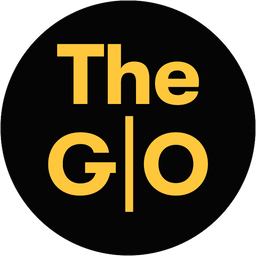#177 THE G|O BRIEFING, APRIL 18, 2024
China Targets Families of Human Rights Defenders, NGO Says | New Investigation Accuses Nestlé of Violating WHO’s Guidelines on Obesity Prevention | Iran the Big Winner of the Post-US World Order
Today in The Geneva Observer, we report on the strong denunciation from NGO ‘Chinese Human Rights Defenders’ (CHRD) of a large-scale harassment campaign against the families of human rights activists in the country, including their children. Lawyers are also often targeted by Beijing—a situation, we disclose, that has recently led the UN special rapporteur on the independence of judges and lawyers to raise concerns with the Chinese authorities.
We also revisit a 50-year-old battle between WHO and the food industry, rekindled by the publication of an investigation by Swiss NGO Public Eye revealing that Nestlé adds sugar and honey to infant milk in developing countries, in violation of the UN agency’s widely accepted anti-obesity guidelines. Plus, a short update on the status on the negotiations on the pandemic accord, and more. As always, thank you for reading us.
China Punishes Activists and Families to Quash Dissent, Report Says
Children of dissidents have been put into psychiatric hospitals with their parents, or have disappeared into state custody. Other targeted families have been forced to move home repeatedly to evade constant harassment, including having their water and other utilities cut off, victims told a private online news briefing this week, attended by The Geneva Observer.
“The most heart-breaking part in really inflicting so much pain is the harm done to children. Children growing up from a young age watching their parents being mistreated and persecuted leaves a long-term psychological trauma,” said Renee Xia, director of the NGO Chinese Human Rights Defenders (CHRD).
The CHRD’s report, ‘If I Disobey, My Family Will Suffer,’ covers the persecution of the families of activists from the Han Chinese majority, Uyghur and Tibetan minorities, and from the pro-democracy movement who have fled Hong Kong.
“Children of rights defenders, including human rights lawyers, have been punished through guilt by association, from deprivation of personal freedom—house arrest, arbitrary detention in government designated facilities, forced into foster homes—to obstruction of the children’s education,” the report said, adding that “The Chinese government’s collective punishment of human rights defenders’ families appears to be a state policy.”
Some of the dozens of documented cases have been submitted for inclusion in UN Secretary-General Antonio Guterres’ next annual report on reprisals worldwide, due in September, according to Xia. The UN Committee on the Rights of the Child is due to review China’s record in 2025, The Geneva Observer has learned.
In a letter to Chinese authorities in mid-February, reported here for the first time, Margaret Satterthwaite, UN special rapporteur on the independence of judges and lawyers, voiced concern about laws used to revoke or suspend licenses that amount to “undue interference with the freedom of lawyers and law firms to exercise their legal profession.” Lawyers released from custody face disbarment and their families suffer eviction, duress, threats and expulsion from schools, she said, calling for corrective measures.
‘Blacklist’ Exit Bans
China’s ambassador Chen Xu, speaking at the country’s Universal Periodic Review (UPR) in January, told the Human Rights Council that his government protected basic freedoms for all citizens. The delegation is to report back in June on which of the record 428 recommendations put forward by other states it has accepted.
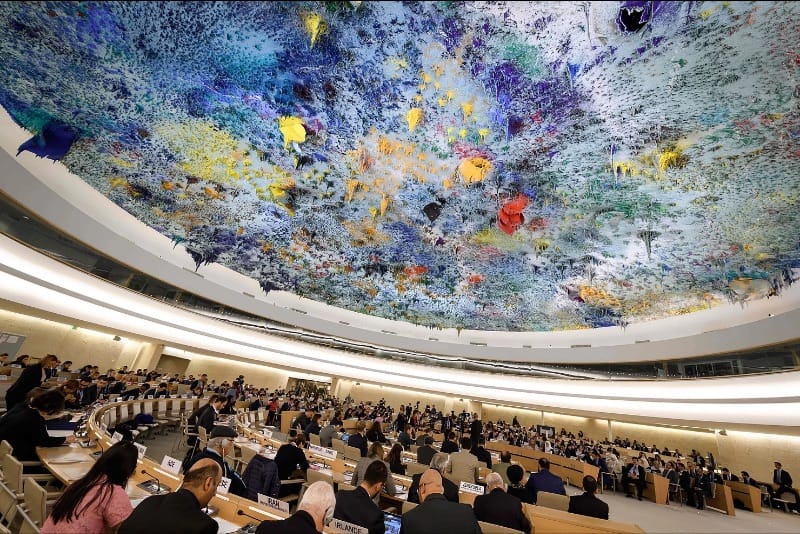
However, campaigners’ relatives say they are subjected to an intimidation campaign and sometimes put on a exit ban ‘blacklist’, preventing them from leaving the country, without any court order or legal grounds.
Wang Quanzhang, a prominent human rights lawyer released from prison in 2020 after serving four years for alleged subversion, resorted to living in hotels after multiple evictions, together with his activist wife Li Wenzu and son Quanquan. “But police would also follow us to hotels to threaten us, to push us out,” Li Wenzu said. “Then we tried to stay with a friend, and then the friend was visited by the police and threatened. They also came into his place in the middle of night and kicked us out of bed.”
“Eventually [Quanquan] was also stopped and we realized he was blacklisted. My husband Wang and I could not obtain passports, we are subjected to an exit ban,” she said. “Eventually we moved to Guangdong, we put my son into a church school, but then the church school also faced intimidation and eventually my son had to leave. Now we are trying to do online classes for him.”
He Fangmei, an advocate for safe vaccination, was pregnant when arrested in October 2020 while protesting outside a government office. “One month after giving birth, she was detained and taken away from the baby,” said one lawyer representing her. “The baby and the then four-year-old sister [who became paralysed after receiving defective vaccines] were detained in that psychiatric hospital in Huixian in Henan province. So that’s the urgent situation right now, we need to get those girls out.”
The court has indicated it would provide compensation for the disability, but has not specified an amount while He’s detention continues, the lawyer said, adding: “So the case is stuck.”
IT specialist Niu Tengyu was arrested in 2021 after the website he worked for posted leaked personal information about the daughter of President Xi Jinping. He was sentenced to 14 years in prison. “He was horribly tortured,” his mother, known as Keke, told reporters. “So as his mother I have been speaking out, to expose the torture details, to demand accountability, to demand to visit my son. Because of this, I myself have been subjected to all sorts of police harassment. They cut off my water, my electricity, air conditioning in the summer, people followed me all the time, they created noises at night to make it impossible to sleep.”
“They have staged some kind of a smear campaign against me,” Keke added. “Right now, I can hardly manage my own life, I am practically disabled [after being subjected to] so much stress and pain.”
“Wall of Secrecy”
Many Uyghurs in the diaspora face “a wall of secrecy, maintained by Chinese authorities, about their detained relatives,” according to the CHRD report.
Ekpar Asat, a Uyghur entrepreneur who also promoted their Turkic language, has not been allowed family visits since his detention eight years ago on unknown charges, according to Ekpar’s sister Rayhan Asat, a prominent activist, quoted in the document. “She knows that authorities are weaponizing the family visits to put pressure on her to end her activism,” the report said.
The UN Working Group on Arbitrary Detention found in 2022 that his internment, surrounded by “total secrecy,” was unlawful, and called for his release.
“The substantial use of collective punishment against human rights defenders demonstrates the distance that the Chinese government is willing to go to silence peaceful critics and maintain its grip on power,” the CHRD report said.
-SN
A Fifty-Year-Old Battle Between WHO and Nestlé Rages On
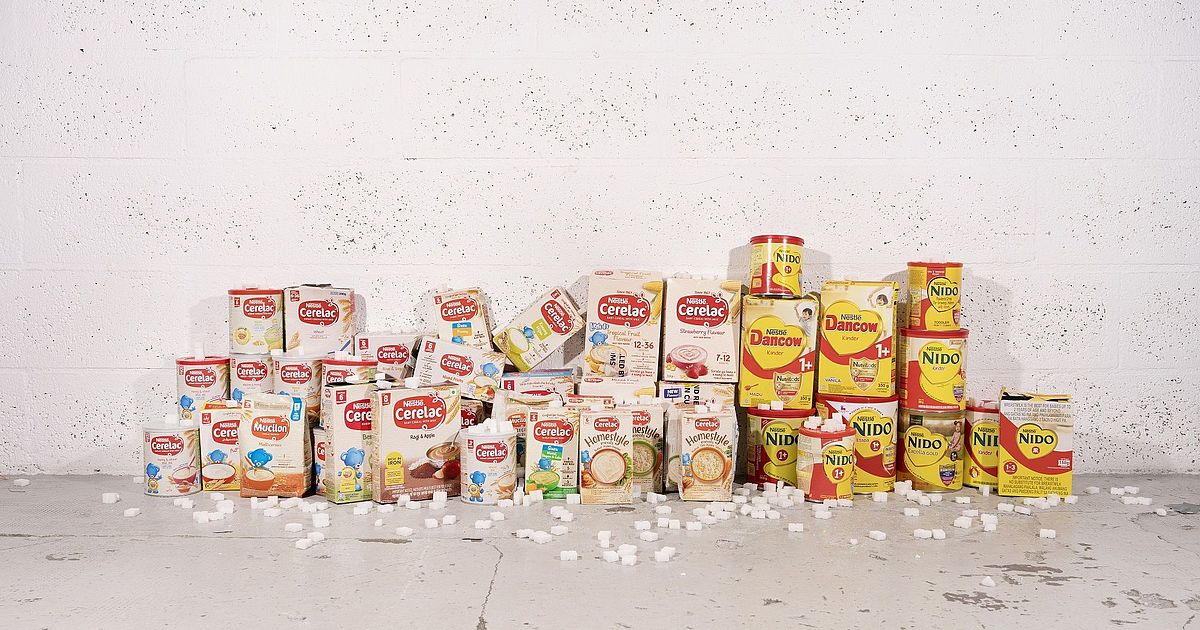
A 50-year-old battle between the World Health Organization (WHO) and the food industry shows no sign of abating. It has, in fact, just been rekindled. Published on Tuesday, ahead of today's Nestlé’s annual shareholder’s meeting an investigation by Swiss NGO ‘Public Eye’ reveals that Nestlé—the world’s largest consumer goods company—adds sugar to baby milk and cereal products sold in many low- and middle-income countries, a practice the NGO says violates WHO’s widely accepted guidelines for the prevention of obesity.
The company is also under increased pressure from some of its shareholders and public health advocates to reduce unhealthy food from its product lineup, while Public Eye’s revelations have already prompted the Indian food regulator to launch an investigation.
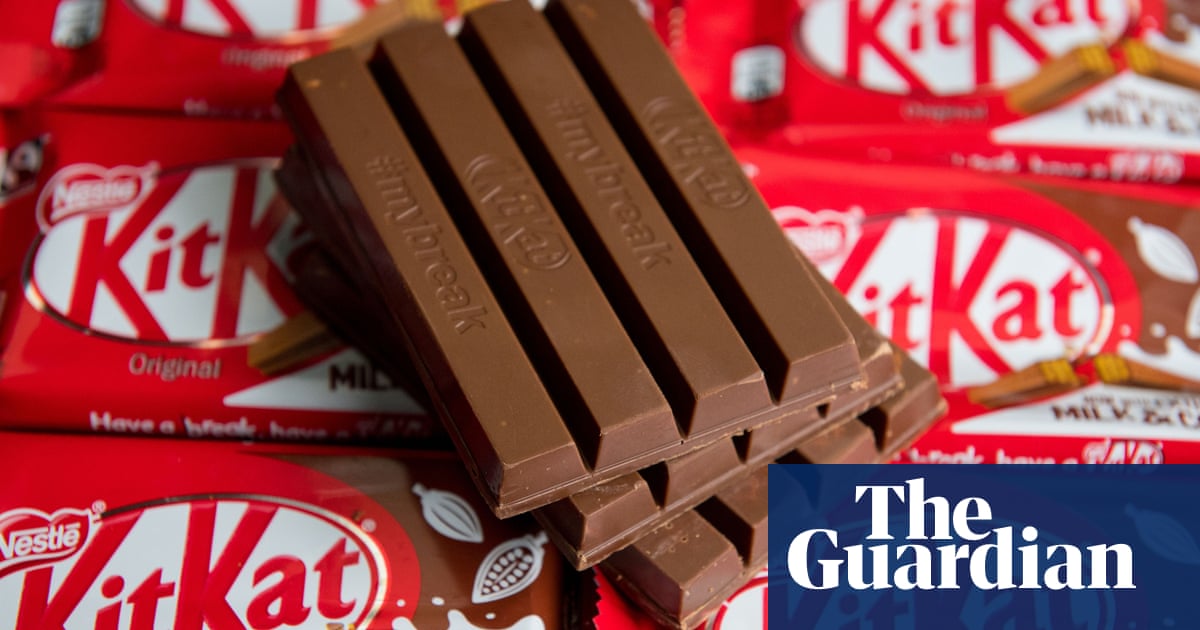
Samples of products from Asia, Africa, Latin America, and Europe were sent to a Belgian laboratory for analysis by the Swiss NGO and its partner International Baby Food Action Network (IBFAN). Public Eye’s search for a testing lab in Switzerland was unsuccessful: “Several laboratories approached in Switzerland refused to conduct the sugar analysis of Nestlé products. One lab even wrote that it could not take part in the project because the results ‘could potentially have a negative impact’ on its existing customers,” according to the NGO.
Besides discovering that sugar and honey were added to some of Nestlé’s products, the Belgian testing also revealed that the same products sold in Europe were not sweetened—an “unjustifiable double standard,” for the Swiss NGO; and one condemned by the WHO: “There is a double standard here that can’t be justified. [It] is problematic both from a public health and ethical perspective,” Nigel Rollins, a senior scientist at WHO told Public Eye’s investigators.
“This study stresses the need for urgent action to reshape the food environment for children,” Dr Francesco Branca, Director of WHO’s Department of Nutrition and Food Safety, told the investigators. “Eliminating added sugars from food products for young children would be an important way to implement early prevention of obesity.”
Public Eye and IBFAN focused on two flagship Nestlé product lines for infants, Nido and Cerelac. Nido is a follow-up milk formula for infants of one year and older. Cerelac is a cereal product aimed at toddlers between the ages of six months and two years. Sold under different names around the world, combined global sales of the two products are estimated at $2 billion.
Commenting on the report, Laurent Gaberell—Public Eye’s agriculture and nutrition expert and one of the study’s authors—said: “Nestlé must put an end to these dangerous double standards and stop adding sugar in all products for children under three years old, in every part of the world.”
Obesity in poor countries, particularly among children, has long been an increasing concern for WHO and public health experts. According to the WHO, in Africa, obesity in children under the age of 5 has risen by 23% over the last 20 years.
For Gaberell, adding sugar to products destined for babies and toddlers is a tactic used by food companies to create early dependency, an explanation shared by Nigel Rollins of WHO. He considers the practice “totally inappropriate.”
While no global recommendations exist when it comes to preventing obesity, WHO’s guidelines for Europe are widely accepted as the standards to which the food industry should conform.
Public Eye and IBFAN see the result of their latest investigation as yet another example of the food industry and Nestlé’s efforts to avoid abiding by the guidelines and regulations of WHO and other public health organizations, and of using what they denounce as deceptive marketing tactics.
“Fifty years after the infant formula scandal, Nestlé claims to have learned from the past while doing everything it can to keep its world leadership in infant nutrition. The food giant controls 20 percent of the baby-food market, valued at nearly $70 billion. The results of the investigation ‘How Nestlé gets children hooked on sugar in lower-income countries’ tells a completely different story,” Public Eye wrote in the introduction to its report.
In response to the report, a company spokesperson insisted that Nestlé “believe in the nutritional quality of our products for early childhood and prioritise using high-quality ingredients adapted to the growth and development of children,” and comply “with local regulations or international standards, including labelling requirements and thresholds on carbohydrate content that encompasses sugars”—as quoted in The Guardian.
The company came under renewed scrutiny in 2021, after a Financial Times investigation based on Nestlé’s internal documents revealed that about 60% of its product line did not meet WHO’s definition of “healthy food.” At the same time, it made a controversial $2 million to the WHO Foundation.
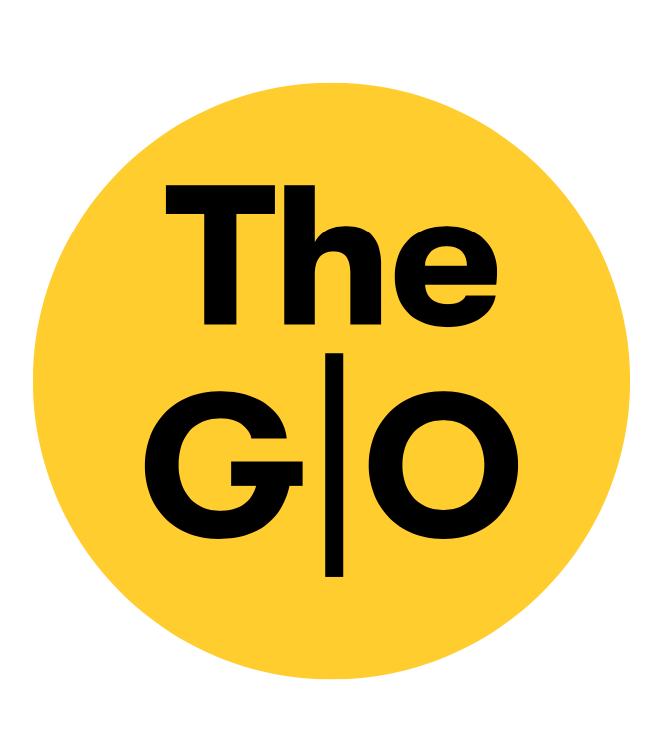
The Indian food regulator has announced it is launching an investigation into the alleged use of sugar in baby food products. Public Eye revealed that some of the products in the Cerelac line sold in India contain on average three grams of added sugar per serving.

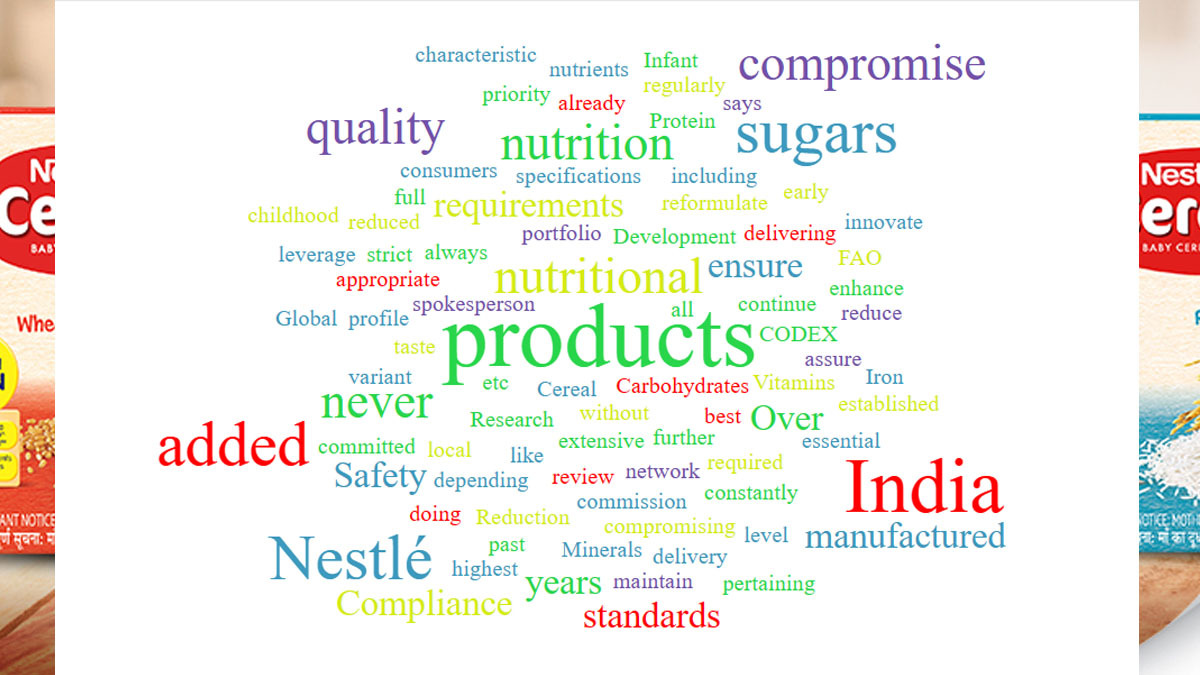)
-PHM
Elsewhere in the Ecosystem
A Follow-Up on the Pandemic Agreement Negotiations
Some of the very best health reporting comes from Geneva. Here at The G|O, we focus on the diplomatic and political dynamics around the pandemic agreement negotiations, but if you want to sink your teeth into the agreement itself in all its complexities, head straight to Geneva Health Files or to Health Policy Watch (HPW), both Geneva-based. The former reports—in an exclusive analysis of the draft text now on the table—that if reached, the accord “will likely have no fund and no binding obligations on pathogen access and benefit sharing,” (PABS), one of the most central issues in the negotiations, but one which contains provisions that Big Pharma strongly opposes. HPW, meanwhile, informs us that “the next draft of the World Health Organization’s (WHO) pandemic agreement is likely to be stripped of contentious clauses.” Rather than an agreement—the reference to a “treaty” has by now largely been abandoned—it will, HPW writes, be “an instrument of essentials, a document that will be fleshed out by further talks in the next couple of years.”
We wrote last week that WHO’s Member States were looking to free themselves from an unrealistic self-imposed deadline and offer a face-saving option to the health organization. It appears they may have found the formula, although it is unlikely to satisfy health activists. “This agreement will not create the conditions to prevent another pandemic. Once again, the multinationals have succeeded in influencing the content of the document,” Jayati Ghosh, an Indian development economist and member of the Global Preparedness Monitoring Board (GPMB) recently told Swiss daily Le Temps. “There's nothing in the draft agreement about lifting patents on vaccines, nothing about essential technology transfers, and no conditions on the private sector being subsidized. I'm extremely disappointed.”
-PHM
This caught our attention…
A nice exclusive from our colleagues at Le Temps about a major rift within the International Trade Union Confederation (ITUC):
The International Trade Union Confederation is on the “verge of a schism” writes the Swiss-French paper of record. It reports today (April 18) that Russian union leader Alexey Zharkov, a member of the Federation of Independent Trade Unions of Russia (FNPR), an organization praised by Vladimir Putin during its last Congress in early April, is on the list of ITUC candidates for a seat on the ILO’s Governing Body. The vote is scheduled for tomorrow. Elected to the board in 2020, Zharkov was suspended in 2022 after Russia’s full-scale invasion of Ukraine, the paper writes. Le Temps quotes Luca Cirigliano, Head of International Affairs at the Swiss Trade Union Confederation: “It is unthinkable that the FNPR should be represented on the ILO's Governing Body. [The Union] is an integral part of Vladimir Putin's dictatorship, associates itself with the occupation of Ukraine and participates in the persecution of Russian trade unions and free trade unionists.” The ITUC, Le Temps writes, has declined to comment.

If you read Daniel Warner’s recent op-eds in the G|O on the possible complicity of countries arming Israel in the commission of what the ICJ called a “plausible genocide” in Gaza, Just Security has a long legal piece on the topic:
“Israel’s military campaign against Hamas has just now passed the six-month mark. Its consequences for the civilian population have been devastating. ‘Business as usual’ is no longer an option for third States providing material support to Israel in the form of arms and other military equipment. They must undertake not only a moral and political, but also importantly legal assessment of the implications of that support.”
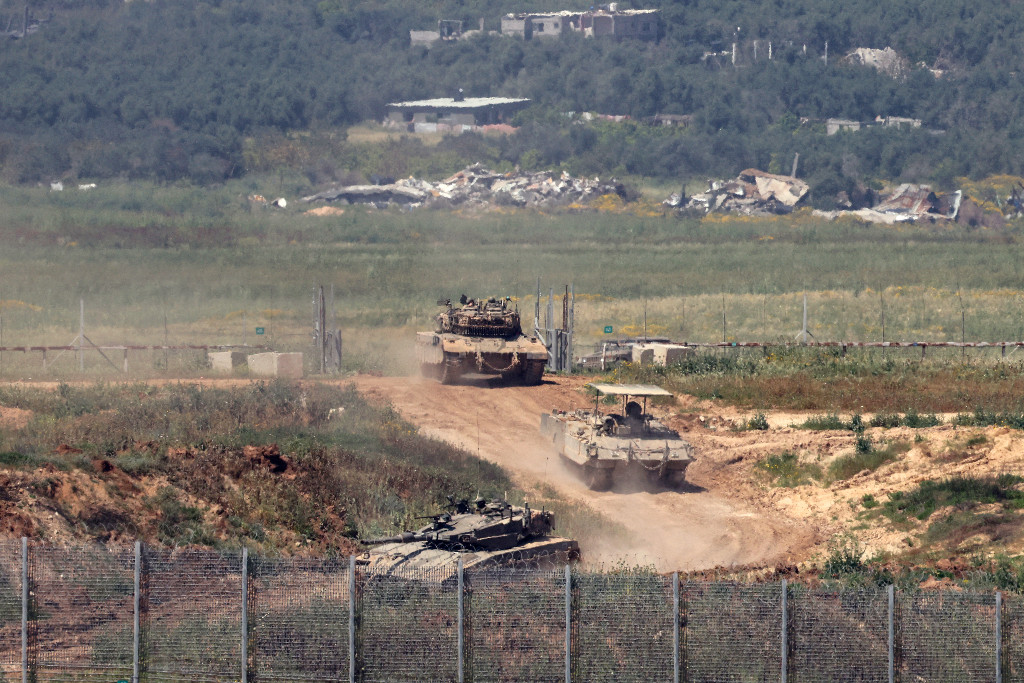

And lastly, we have an op-ed by former German Foreign Minister and Vice Chancellor Joschka Fischer on the war in the Middle-East.
The Gaza War Goes Global
The escalating war in the Middle East must be understood in a broader context. The fact that the Iranian regime felt emboldened to risk a direct strike on Israel attests to a changing world order in which Western power is increasingly open to challenge, Fischer writes.
By Joschka Fischer*
With Iran’s drone and missile attack on Israel on the night of April 13, the war in the Middle East has taken on a new dimension. For years, the conflict between Iran and Israel had been a “shadow war” in which both sides avoided direct military strikes on each other’s territory. Instead, the conflict reached furtively into the streets of Tehran, where there have been assassinations of Iranian nuclear scientists and engineers, and into war-torn areas of Syria, Lebanon, Yemen, and Gaza. In those hot spots, the so-called Axis of Resistance – comprising Hezbollah (in Lebanon), Hamas (in Gaza), and the Houthis (in Yemen) – receives extensive support in the form of Iranian money, weapons, and training.
"The war is the latest chapter in a bloody conflict that Israelis and Palestinians have been fighting over the same stretch of land for almost 80 years."
The current war started on October 7, 2023, when Hamas launched an attack on Israel that claimed 1,200 lives and 253 hostages. Israel soon hit back, and the war has been raging in Gaza ever since. As a result of the Israel Defense Forces’ campaign to eliminate Hamas once and for all, more than 30,000 Palestinians have been killed, and the enclave has been laid to waste.
Despite these horrors and the appalling conditions in Gaza, the war is the latest chapter in a bloody conflict that Israelis and Palestinians have been fighting over the same stretch of land for almost 80 years. By contrast, Iran’s direct attack against Israel represents something new. To launch a strike from Iranian territory, rather than operating through proxies, is to invite retaliation against Iran itself. The Iranian regime either must feel very sure of itself, or is under enormous pressure to make a show of strength, even if that means risking “open war” not only with Israel but also with the United States.
The immediate trigger was Israel’s April 1 strike on an Iranian consulate building next to Iran’s embassy in Damascus, where several members of the Iranian Revolutionary Guard Corps, including two high-ranking commanders, were killed. Though these were hardly the first casualties of Iran’s “shadow war” in Syria and Lebanon, the Iranian leadership nonetheless felt compelled to respond.
True, Iran did reportedly let the US know through informal channels that its counterattack was imminent, and no one was particularly surprised when it came. Nonetheless, the implications of the move are profound. The war is no longer an Israeli-Palestinian one over the same stretch of land; it has been regionalized – even globalized.
Looming ominously in the background is the potential threat posed by the Iranian nuclear program. Given the latest developments, this existential threat to Israel is becoming less hypothetical by the day. Will Iran take the final steps to cross the nuclear threshold, and does the mere possibility increase the odds of a war with Israel and the US? That is now the big question for the entire region.
Moreover, we know that Iran’s aims extend beyond achieving regional predominance. The regime would welcome the replacement of the US-led international order by a more multipolar system in which great and emerging powers compete. To command a powerful position in this new international order will require nuclear weapons, access to state-of-the-art technology, and an end to the economic isolation implied by far-reaching Western sanctions. All this now looks to be within reach through its deepening ties with China, Russia, and parts of the Global South.
"Iran’s theocratic regime is among the big winners of the transition away from the US-led world order."
Iran’s theocrats know that they are in a fraught position domestically. Large-scale protests led by women, young people, and ethnic minorities (in Kurdistan and Baluchistan, for example) have discredited the regime, as has rampant corruptionamong the ruling elite. The country’s aging leadership no longer has any legitimacy; it is merely surviving through outright repression. But while relying on truncheons and bullets may work for a while, it is hardly a recipe for long-term success.
In geopolitical terms, however, the situation is completely different. Iran’s theocratic regime is among the big winners of the transition away from the US-led world order. According to the International Atomic Energy Agency, Iran’s nuclear program has advanced further than ever, putting it on the threshold of enriching enough weapons-grade uranium for a bomb. One also should assume that Iran has the technological know-how to build a nuclear warhead and the systems for delivering it.
In an increasingly favorable geopolitical landscape, Iran’s marriage of convenience with Russia and China is of paramount importance, not least because it will allow the regime to escape its decades-long international isolation. As new and emerging powers seek to develop new multilateral structures beyond the reach of Western hegemony, Iran will almost inevitably benefit.
The war in the Middle East must be understood in this broader context, which also includes Ukraine and Taiwan. We are witnessing increasingly bold and ambitious efforts to topple the old Western-led order through any means necessary – even outright war.
*Joschka Fischer, Germany’s foreign minister and vice chancellor from 1998 to 2005, was a leader of the German Green Party for almost 20 years.
Copyright: Project Syndicate, 2024.
Today's Briefing: Philippe Mottaz - Stephanie Nebehay
Op-Ed: Joschka Fischer
Editorial assistance: David Jenny
Edited by: Dan Wheeler
©The Geneva Observer 2024 and Project Syndicate - All rights reserved -


